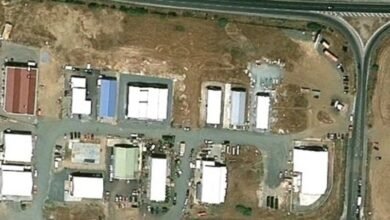1978âs Tax Revolt To Polls On Property Taxes Today

Iâve been thinking about taxes lately, probably because I just started doing mine. But Iâm also interested in broader public opinion on taxes. And here I have a minor beef with the pollsters: they donât ask enough questions about peopleâs ordinary lives, including their taxes. Yes, we know that high gas and food prices have had a tremendous impact lately, and the pollsters have explored those issues comprehensively. But beyond that, itâs a desert in terms of other ordinary concerns like local property and sales taxes.
Gallup, Pew and a couple other pollsters ask about taxes, but they are usually one off questions around tax time, and they donât cover a lot of ground. To be fair, taxes arenât anywhere near the top of the scorecard when Americans are asked about the issue most important to them. Only 4% say gave that response in the latest Economist/YouGov poll.
Taxes havenât been a top issue for years. The House-passed tax bill, still languishing in the Senate, gets attention from editorial pages, but very little from the public at large. Republicans used to have an edge on handling taxes, but that has mostly disappeared, and Americans arenât confident that either party will do much about reducing them. When Gallup asked about the George W. Bushâs and, separately, Donald Trumpâs tax cuts, most people said the cuts wouldnât help their families, although they were slightly more optimistic about their effect on the economy as a whole. Americans usually want to extend tax cuts when they are set to expire, even if they donât think theyâll personally benefit
Roughly a half century ago, one tax, the local property tax, kept pollsters very busy. News stories today suggest it is imposing a significant burden on home owners in many places. In 1978, Californians passed Prop 13 which capped property taxes, fixed a propertyâs assessed value to its original price, and required a two-thirds vote to approve new taxes, among other things. The last update I could find in the Roper Centerâs polling archive about property taxes was from 2006. So I cheered a new UChicago Harris School of Public Policy/A-P/NORC survey that asked about it.
What did we learn from the new poll? In terms of the federal taxes, the surveyors found that 16% wanted more government services with higher taxes, 32% the status quo, and 50% less government services in order to reduce taxes. The pattern and the responses were roughly the same for the local property tax and the state sales taxes. Partisanship was a strong predictor of attitudes, and pluralities of Democrats wanted to keep things the same for each of these taxes. In each case, majorities of Republicans wanted less services.
In another question, roughly half of Democrats said the local property tax and the federal income taxes were very or somewhat unfair. Two-thirds of Republicans gave this response. Although more than six in ten said each of these taxes was too high, the local property tax beat out the others. A third said the property tax was much too high whereas 23% gave that response about the sales tax, and 28% the income tax.
More people said the amount they personally paid for property taxes had increased compared to the other two taxes. In another question, seventy said that what they pay in property taxes had increased a lot or a little in the past five years. Sixty-one percent said the same about the federal income tax and 50% the state sales tax.
Only slightly more than two in ten said the value they received from these taxes was very or somewhat good. Respondents generally viewed all taxes in negative terms. But there is tentative evidence that the local property tax is pinching especially hard and it bears watching by the pollsters.
Source link




